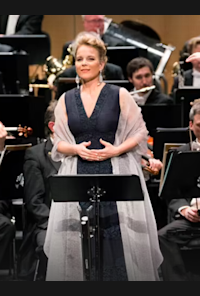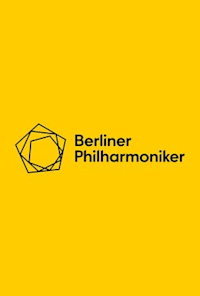

Simon Rattle and Elīna Garanča
Compartilhar
Berliner Philharmoniker (2018)Informações da organização de artes (Verificadas pela Operabase)
Estrelando:
25 março 2018 (1 espetáculos)
|
1h 31mins
Simon Rattle and Elīna Garanča by Various, dom 25 mar 2018, De (2018/2018), Regente Simon Rattle, Festspielhaus Baden-Baden, Baden-Baden, Alemanha
Vendo elenco e equipe para 25 mar 2018
Produtor
Maestro

(2018 mar 25)
Elenco
Soprano

(2018 mar 25)
Conjunto
Orquestra
Saiba mais sobre o compositor
Saiba mais sobre o trabalho musical
Assista agora em
digitalconcerthall.com
